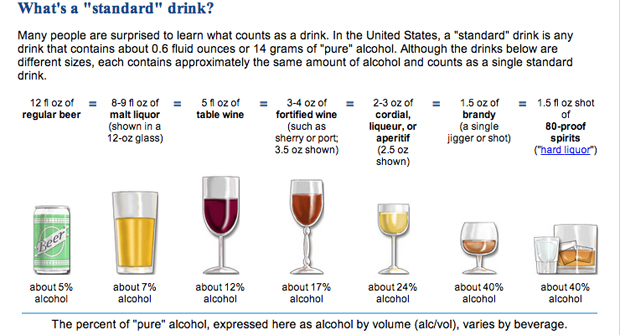#14Days: Moderation, a radical option in treating addiction
Is it possible for people with alcohol use disorders to heal, resolve their drinking problems, and then safely continue to drink in moderation? It's a controversial idea, but some experts say that for certain people in early stages of alcoholism, moderation management can be a solution.
Of the 23 million Americans struggling with addiction to alcohol or drugs, only about 2.5 million are receiving treatment.
"The biggest problem is that 90 percent of people who need treatment aren't getting it. These people say, 'I don't want to quit,' or 'I enjoy drinking too much to stop'," explains Dr. Adi Jaffe, Clinical Director of Alternatives Treatment Center in Los Angeles.
Traditional 12 Step recovery programs call for total avoidance of alcohol. To address those who need help but may be avoiding treatment due to a lack of desire for abstinence, Jaffe and his partner Marc Kern Ph.D. founded Alternatives Addiction Treatment, a center in Los Angeles that offers a program of moderation. The center also offers abstinence and harm-reduction models of treatment.
"Most people come to us ready to change," Jaffe says.
Jaffe openly discusses his past as a former methamphetamine addict who was locked up in prison for dealing drugs. While doing time, Jaffe had the realization that he no longer wanted to live the life of an addict. He sought treatment, turned his life around, got his Ph.D. in psychology, and has been in recovery for the past nine years. Jaffe is also a moderate drinker.
"I like my scotch," he says.
It's important to note that the program of moderation management only applies to alcohol, not hard drugs. Jaffe could not go back to doing a "little bit" of meth and sustain a life of recovery.
Clients enrolling in the moderation program at Alternatives must stop drinking completely for the first month of treatment. Then, after that month, they may drink moderately -- about one to nine standard drinks per week (see image below).
While in treatment, clients are monitored by mobile breathalyzer tests which they take four times per day.
Simultaneously, clients undergo Alternatives' bio-affective management system that works to address the underlying issues that lead to excessive drinking. The program incorporates biofeedback, or what it describes as "individually tailored treatment that reduces anxiety, improves sleep and resolves impulsivity issues helping clients reduce their need to self medicate." This training, they say, helps people learn how to drink without the destructive consequences.
Treatment for addiction should not only address the actual substance abuse, Jaffe explains, but also the underlying reasons a person feels compelled to drink, such as past trauma or emotional and physical pain.
He believes that recovery should be measured by improvement in a person's quality of life, not simply whether they've stopped drinking.
After going through Alternative's program and reintroducing alcohol into their lives, some people realize that they cannot manage a life of moderate drinking and end up choosing abstinence. Jaffe says having the experience of making that choice helps these people stay committed to their treatment.
No matter how committed a person is to his or her program of recovery, the risk of relapse is always real. According to a report from the National Institute of Drug Abuse, 40 to 60 percent of people treated for addiction will relapse.
"Most people relapse because of regular fluctuations in life and stress," Jaffe says. "Then they think, 'If I've already screwed up this much, I might as well throw it all away.'"
He says, with a program of moderation, people struggling with abusing alcohol can drink without the shame and guilt that comes from failing in a program that requires abstinence.
Jaffe reiterates that abstinence-based 12 Step programs and Alcoholics Anonymous are helpful for the some of the worst cases of addiction, but not necessarily for everyone.
"Those programs make people feel safe, but unfortunately, they keep a lot of people who really need help out of treatment," he says.
Many experts, however, say moderation management has its dangers.
"For a true alcoholic, moderation doesn't work," says Dr. Harris Stratyner, an addictive behavior psychologist and New York Regional Vice President of the Caron Treatment Center. "Those who try to drink moderately find that within a short amount of time they are drinking excessively again."
"Addiction is a disease that impacts individuals and families in many ways," he says. "From [Caron's] standpoint, recovery requires a commitment to abstinence with a roadmap for managing one's mental, physical and spiritual wellbeing. The addicted brain cannot sustain moderate drinking."
Another cautionary note comes from Dr. Tom Horvath, the former president of the American Psychological Association's Society on Addiction Psychology and founder of Practical Recovery, a a self-empowering addiction treatment system in San Diego.
"For a person with no history of successful moderation, becoming a moderator is unrealistic," Horvath says. "The consequences of having a binge can be disastrous."
But in certain cases, he suggests, it may be a viable option. "A good candidate for moderation shouldn't have a significant physical dependence," Horvath says. "They should have a supportive social network, and be socially stable (i.e. employed, family, home life)."
Tell us what you think: Is moderation a realistic response?
- Read more: #14Days on the Wagon
If you missed day one of #14Days, it's not too late to take some healthy first steps. On day two of the series, we found out how tapping can help relieve stress and anxiety. On day three, Dr. Drew talked addiction and stigma.
Use the hashtag #14Days to tell us how the challenge is going for you.
Editor's note: This story has been corrected to reflect that Jaffe received his Ph.D. in psychology; he did not go to medical school.
